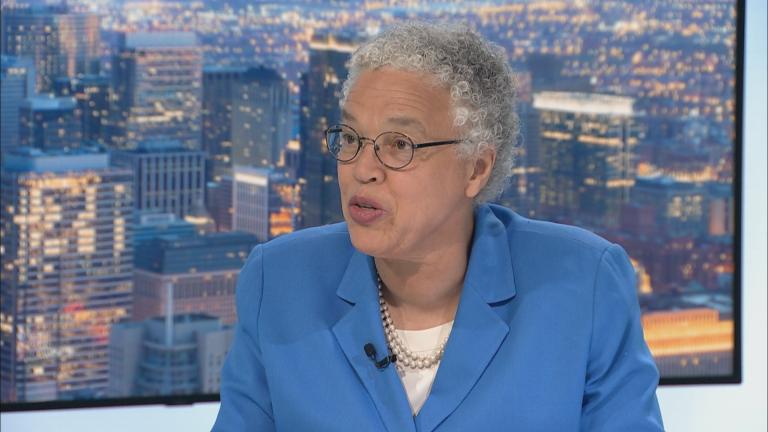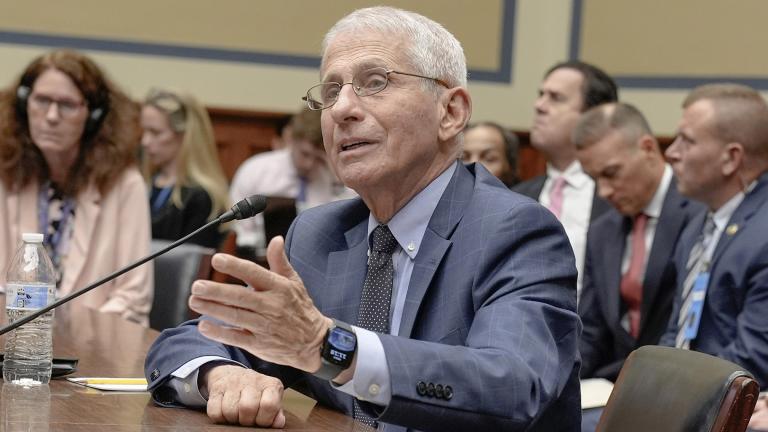Months after they were initially diagnosed with COVID-19, some patients are still experiencing symptoms of the virus.
Known as “long-haulers,” they report a wide range of sustained symptoms, from extreme fatigue, weakness and brain fog to headaches, hair loss, and coughing.
Jamie Novick, of Blue Island, was hospitalized in May with the coronavirus. Today, the 44-year-old has lung damage and is still suffering from exhaustion and a range of other symptoms, including a cough, shortness of breath, headaches, nausea, chest pain, skin sensitivity and hair loss.
“My energy levels are basically in the toilet from what they were,” Novick said. “The first few months if I did too much, I might be in bed for several days … You don’t know how much is too much until after it’s too late. Sometimes it could be immediately, and sometimes it’s hours later.”
Novick says it’s “insulting and invalidating” to people dealing with the virus — and the family members who have lost loved ones to the illness — that some people think it’s nothing more than a flu or cold.
Novick said she has doctors’ appointments nearly every week, either with specialists or for diagnostic tests. Her 17-year-old daughter and 14-year-old son, who also contracted COVID-19 in May, still have symptoms, too.
“You can imagine that those interfere with an individual’s ability to get back to their life and get back to work,” said Mercedes Carnethon, an epidemiologist and vice chair of preventive medicine at Northwestern University Feinberg School of Medicine. “The prolonged nature of these symptoms are gonna lead to prolonged determinants in an individual’s quality of life.”
Thirty-eight-year-old Patrick Malia, of Elgin, started having symptoms at the beginning of March, before Gov. J.B. Pritzker issued a stay-at-home order. His fever reached 103 degrees and he had difficulty breathing. Malia didn’t leave his house for 38 days in the spring, and he wasn’t able to do simple tasks like getting water or food. His wife had to help carry him around the house — she’s 5 feet, 2 inches tall, he’s 6 foot 3.
It’s been 222 days since Malia’s first symptoms emerged. He returned to work in July, putting in six-hour shifts at a surgery center. He still experiences extreme fatigue, weakness and memory loss.
“I make a lot of like, little mental errors, you know, forget something with work. My wife will tell me something, and I have no recollection of it,” Malia said.
Sometimes he has a hard time eating dinner because he is too weak. His wife still helps him around the house. In five of the last seven days, Malia said he needed help climbing the stairs.
“Right now I’m sitting at the kitchen table,” Malia told WTTW News during a Zoom interview Monday. “It’s a high-top table and a pub chair. If my 4-year-old were to come home from school right now and wants a hug, I couldn’t pick him up to give him a hug. He would have to crawl up the chair and into my legs to give me a hug because I’m not strong enough to do it.”
Both Malia and Novick are members of Facebook groups for COVID-19 long-haulers, which have thousands of members, some younger, some older, all who echo their experiences.
It’s unclear how many people experience long-term symptoms, though some estimate that figure to be about 10%.
Leonard Jason, the director of Center for Community Research at DePaul University, is conducting research on coronavirus long-haulers. He’s collecting their experiences in two surveys, one for adults and the other for children.
Jason has a background in studying Myalgic Encephalomyelitis/Chronic Fatigue Syndrome, or MECFS. In July, Dr. Anthony Fauci of the Centers for Disease Control and Prevention, said some of the long-term symptoms of the coronavirus resemble those of MECFS.
“MECFS is basically something you get with some type of trigger, like COVID-19. Most frequently it’s mono,” Jason said. “After that you go from relatively well-functioning to limitations in lifestyle, such that it’s hard to work. It’s hard to maintain household responsibilities.”
The three most common symptoms are very similar to the coronavirus, he said. Those are fatigue, cognitive impairment and sleep difficulties.
Less than a year into the virus, a lot is still unknown about COVID-19 and its long-term effects.
“We don’t know who is going to contract the virus and have their symptoms resolved quickly,” Carnethon said. “We don’t know who’s going to have very mild symptoms but end up with this post-COVID fatigue and long-hauler syndrome. What we need are more long term studies.”
The CDC says heart damage is the most serious potential long-term effect of the coronavirus.
After nearly six months, Novick said her symptoms are beginning to improve, and she is optimistic.
For Malia, there are some days he feels like he is 60 years old, and he’s unsure when he’ll improve. It could be tomorrow, or it could be months or years from now, he said.
“I guess the take-home message is, it’s real,” Malia said. “Protect yourself and take it seriously. It’s not a political issue.”








